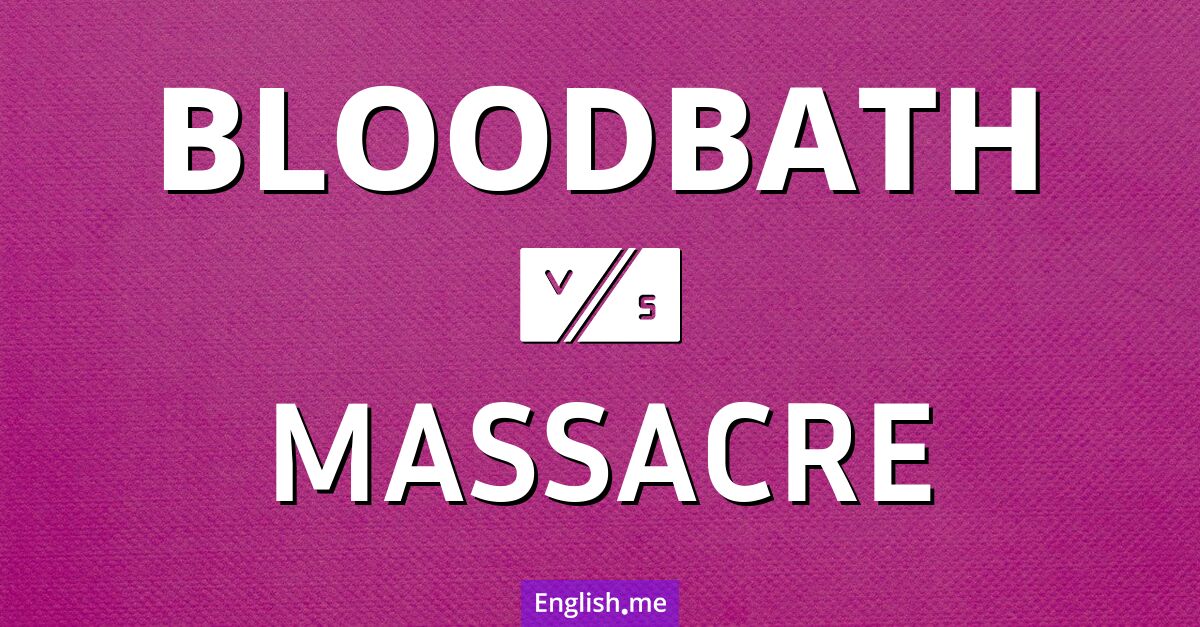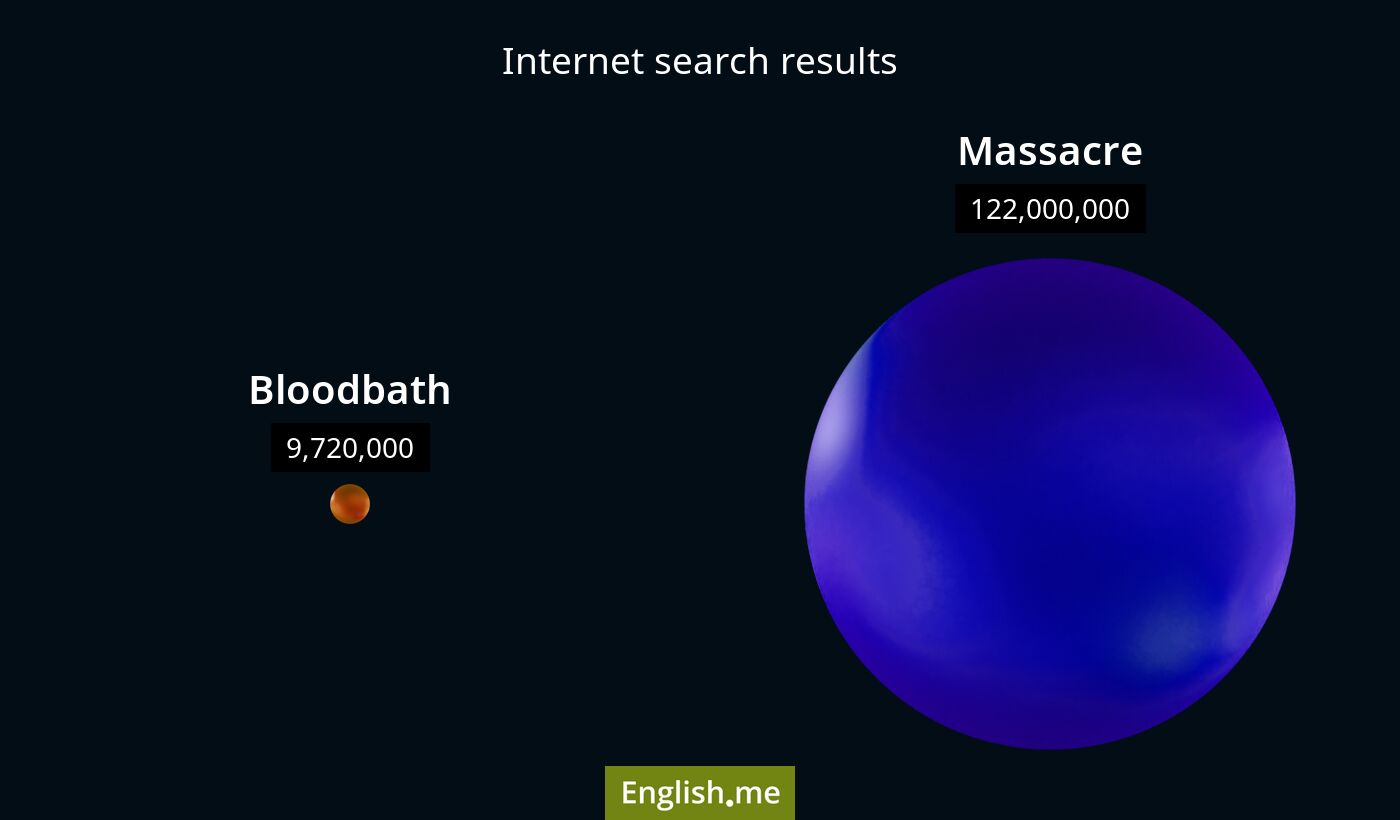"Bloodbath" vs. "massacre": exploring connotations and contexts
Reviewed and edited by  Lloyd Cooper 10/11/2024, 21:05
Lloyd Cooper 10/11/2024, 21:05
English.me team member

 What is similar?
What is similar?
Both "bloodbath" and "massacre" refer to events involving large-scale violence and the killing of many people. They are often used to describe horrific events with high casualties.
 What is different?
What is different?
The term "bloodbath" often emphasizes the brutality and gore of the event, sometimes metaphorically in a non-literal context, such as "financial bloodbath". "Massacre" is more specifically used to denote a deliberate and violent killing of a large number of people, often implying a planned or systematic attack.
 Which one is more common?
Which one is more common?

 Examples of usage
Examples of usage
Bloodbath- The battle quickly turned into a bloodbath as the fighting intensified.
- The stock market crash resulted in a financial bloodbath for many investors.
- The massacre left the town in mourning.
- The massacre of civilians was condemned internationally.

 English
English español
español française
française italiano
italiano deutsche
deutsche 日本語
日本語 polski
polski česky
česky svenska
svenska Türkçe
Türkçe Nederlands
Nederlands